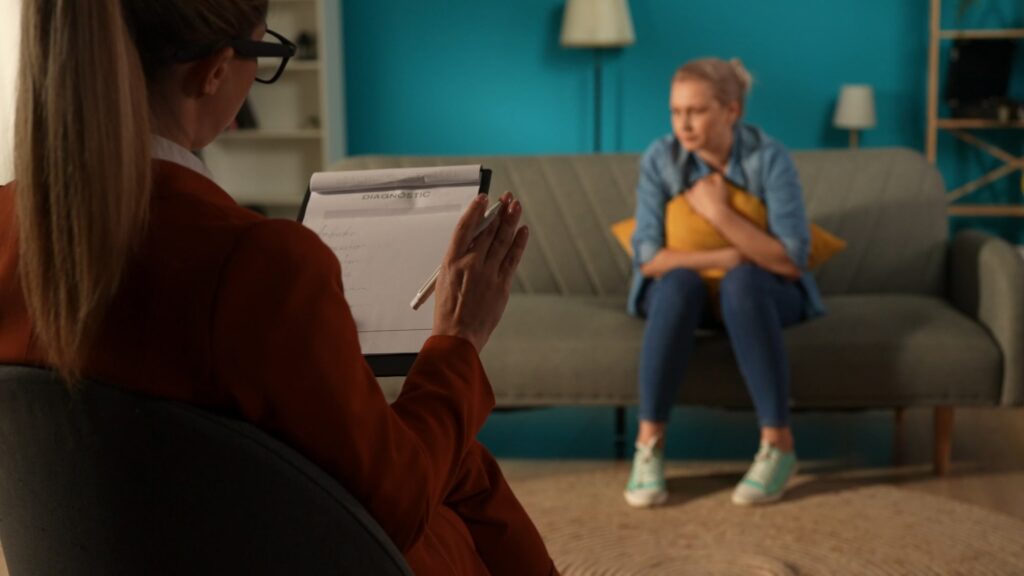Accelerated Resolution Therapy (ART) is an innovative mental health treatment, an experimental and new-age remedy for individuals suffering from trauma, anxiety, depression, post-traumatic stress disorder, substance abuse, and other health conditions.
ART illustrates the evolution of therapy, integrating elements of Cognitive Behavioral Therapy (CBT), Dialectical Behavior Therapy (DBT), Talk Therapy, and Exposure Therapy into a cohesive and personalized treatment plan. In addition, a Randomized Controlled Trial (RCT) is widely considered the “gold standard” to determine whether an intervention is effective or not.
Cognitive processing therapy (CPT) is a specific type of cognitive behavioral therapy that has been particularly effective in reducing symptoms of PTSD that have developed after experiencing combat trauma.
This multi-dimensional approach unravels and mends the complexities of the human mind, fostering resilience and nurturing mental tranquility.
At Transformations Mending Fences (TMF), a leading residential mental health center in North Central Florida, we specialize in administering Accelerated Resolution Therapy with a professional finesse and compassionate touch. TMF prides itself on being the avant-garde in providing this phenomenal therapeutic service, reinforcing the mental fortitude of the Morriston, FL community and its surroundings.
Our mental health professionals are proficient in delivering resolution therapy with the utmost care, tailoring the therapy to meet the unique psychological landscapes of our cherished clients.
At TMF, we believe in the power of expertise harmonized with heartfelt compassion. Each therapeutic session is a passage through self-discovery, healing, and empowerment.
TMF is not just a mental health center; it’s a vibrant community where connections are forged and strengthened. Our location in Morriston, FL, allows us to be deeply intertwined with the local community.
Contact Transformations Mending Fences today at (888) 995-6013 to get started.

As practiced at TMF, ART is a harmonious blend of diverse treatment modalities. Accelerated Resolution Therapy navigates through CBT, enhancing cognitive pathways and cultivating adaptive thought processes. It intertwines with the principles of DBT, fostering emotional regulation and interpersonal effectiveness. Elements of Talk Therapy are seamlessly infused, facilitating a verbal canvas to express, explore, and evolve. Exposure Therapy components are adeptly integrated, allowing for the gentle confrontation and resolution of traumatic memories and distressing experiences. ART therapists help clients work on voluntary memory replacement to help ease the symptoms related to a psychologically traumatic event.
Accelerated resolution therapy is designed to be delivered from one ART session up to five ART sessions, each around 60 to 75 minutes long, over the course of a 2-week period. Research has indicated that many people experience positive results within this time frame. Clients report experiencing fewer negative images caused by a distressing memory and find it easier to focus on positive images.
Accelerated Resolution Therapy (ART) is a versatile and dynamic therapeutic approach that caters to individuals grappling with various mental health challenges. ART transcends the conventional boundaries of therapy, offering transformative solutions tailored to meet each person’s unique needs and aspirations. Here’s a closer look at who can benefit from this revolutionary therapy:
ART stands as a therapeutic powerhouse, adaptable and profound in its approach. Its applicability spans a vibrant spectrum of mental health conditions, making it a resourceful therapy that resonates with hope, healing, and transformation for various individuals and their mental health journeys.
Transformations Mending Fences (TMF) accepts a variety of major insurance plans to ensure accessibility and convenience for those seeking mental health services in Morriston, FL, and the broader Northern Florida area. We understand the financial aspects of mental health treatment, and our goal is to alleviate this stress for our clients by facilitating a smooth and accommodating insurance process.
TMF is strongly committed to professional integrity and excellence in mental health services. Our facility is fully licensed and certified, reflecting our adherence to high standards of practice and ethical considerations in mental health care.
TMF means choosing a credible and reliable residential mental health center in Northern Florida, where the essential aspects of insurance and certifications are meticulously managed for client satisfaction and confidence.

Don’t wait to start your journey toward better mental health. Transformations Mending Fences (TMF) offers specialized Accelerated Resolution Therapy (ART) services in Morriston, Northern Florida, ensuring effective, professional mental health care tailored to your needs. Our fully licensed and certified team is ready to guide you through a transformative process to improve your mental well-being.
Call us today at (888) 995-6013 and discover the supportive, expert care available at TMF. Let us be your partner in achieving mental health balance and recovery.